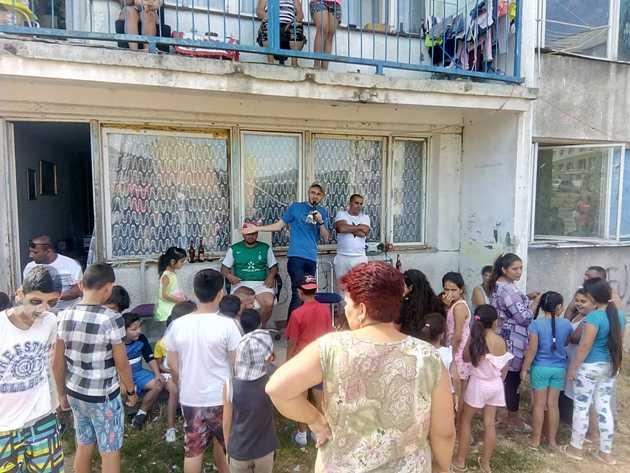Czech institute says city's hope of state investment into "container" housing may be in vain

We here at the Institute for Social Inclusion (IPSI) have written to the director of the Housing Policy Department at the Czech Regional Development Ministry to ask whether it is true that when the city of Most builds “container” housing at the Chanov housing estate according to the model of what was done 10 years ago by former Mayor of Vsetín Jiří Čunek, when he evicted Romani residents to live in containers on the grounds of the former dump at Poschlá (today colloquially called “Čunkoboxy” – Čunekboxes, “Čunkobuňky” – Čunekcells or “Čunkodomy” -Čunekhouses), the city will “draw on the state subsidies in the Ministry for Regional Development program”. The director responded to our letter with one alleging that these plans are not for “container housing”, but for “highly modern, modular” housing that is of almost the same quality as a passive-energy building, and defended it by describing the practice involving such housing in other countries.
Here we note that changing the term used to describe this housing will in no way increase its quality. However, after explaining the expedient, fast construction involved in stacking such containers on top of one another (and we understand that the state needs to show as much “investment” as possible as quickly as possible), the director pointed out that “at the same time, and this is the most important thing, the Government order [about the Construction Program] clearly states that the investment objective shall lead to an improvement in the municipality and shall not lead to the spatial exclusion of people,” and that “the above-mentioned construction of rental apartments in Vsetín would not meet this condition today, nor would it meet demands for energy efficiency.”
One of the MPs for the Czech Pirate Party received practically this same text in response to an inquiry about these plans that he sent to Czech Minister for Regional Development Klára Dostálová. A positive attitude towards “container housing” – while simultaneously rejecting social exclusion when supporting housing – can therefore be regarded as the official position of the ministry.
Politicians in Most are, therefore, now likely to plan unnecessary spending from the taxes paid by their voters on the order of millions of crowns for such housing. Moreover, the steps being taken by Most when it comes to housing generally can be considered worthy of increased monitoring, at a minimum.
It is positive that the Most authorities have voted to start buying up apartments in the style of Chomutov and other cities so that the municipality will have a greater impact on the housing of its citizens than it has had recently. However, what is debatable is that just CZK 5 million [EUR 200 000] were invested in that effort, while for the construction of containers to be used by 10 families now living in dilapidated apartment buildings in Chanov (that they do not want to live in, according to Czech Radio), Most intends to spend CZK 22 million [EUR 862 000].
What that money could more reasonably be spent on in order to support housing was described in the materials that IPSI sent, along with more detailed information, to the local assembly members in Most just before a crucial recent assembly session on this issue. City leadership may hope the state will send them CZK 22 million or more for the containers, but the Czech Government Agency for Social Inclusion, which will be operating out of the Regional Development Ministry as of January, is strictly against support for local segregation, and is even of the opinion that the Chanov housing estate should gradually cease to exist and its residents should be offered housing in Most like everybody else (a conviction we at IPSI share).
However, the situation with regard to the containers in Chanov is also interesting because local residents there – namely, the local Roma, are getting involved. They have no intention of living in any containers, and they know why not.
Local politicians have not explained the plan to them – so far just opposition politicians (Greens and Pirates) have gone to Chanov – but the Roma from Vsetín have already the Roma at Chanov about their own container housing. They made a video for them (here) and came to Chanov to warn them personally against moving into such housing.
In pursuit of scoring political points with voters, Most’s politicians have now encountered a difficult obstacle. They are sending the message to the Roma living at Chanov – through the media, of course – that they should be happy to have hot running water and windows (as Deputy Mayor Hrvol said in a Czech Radio Plus report), or they are explaining the investment to voters as “buying peace” (as Councilor Nedved posted to his Facebook profile), or trying to say no exclusion is involved (Mayor Paparega posted the following to a discussion on the Facebook page of the Most daily newspaper: “I’m not saying to segregate anybody. The current situation will only change in that the housing [that the occupants] have [allegedly] destroyed will be replaced with dignified, full-fledged housing.”
Nevertheless, the local Romani residents themselves, like the ones in Vsetín, recognize that the very intention of stacking families on top of each other in a building made of sheet metal is degrading and, therefore, they are refusing it. When the ruling politicians finally dare to visit Chanov, they should notice that normal people live there.
These are young families bringing their children by bus no. 10 every day to Most’s preschools, men who can work both at the workshop in the community center and on construction sites, women who can keep their family members and households clean even without hot running water. “They must think we’re stupid,” one woman in the Vsetín video answers when asked why she believes containers have been offered for use as housing just to Roma from the very beginning here.
Chanov’s Roma now have a chance to prove they can’t be fooled. They know more about segregation than the Mayor and the Ministry of Regional Development combined.
